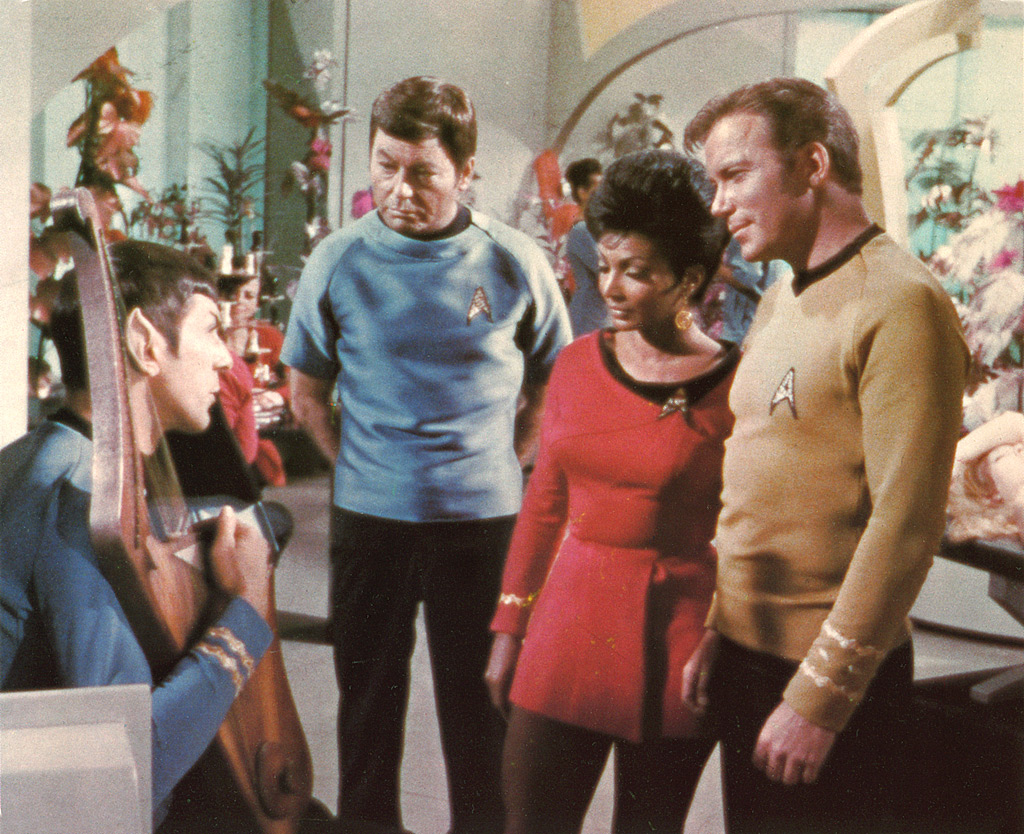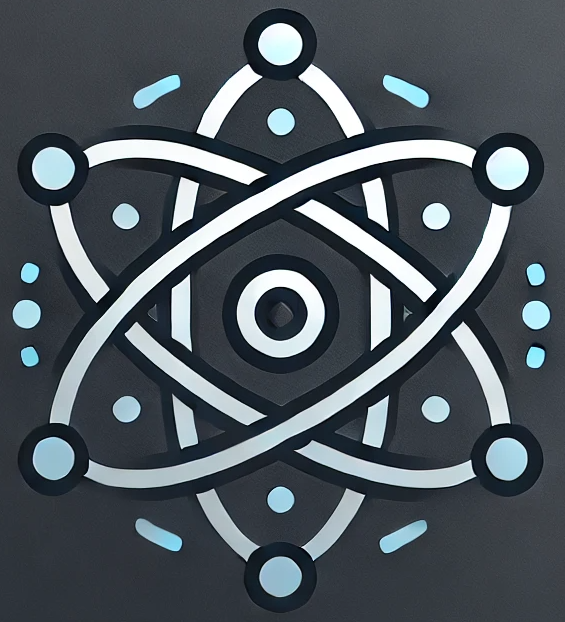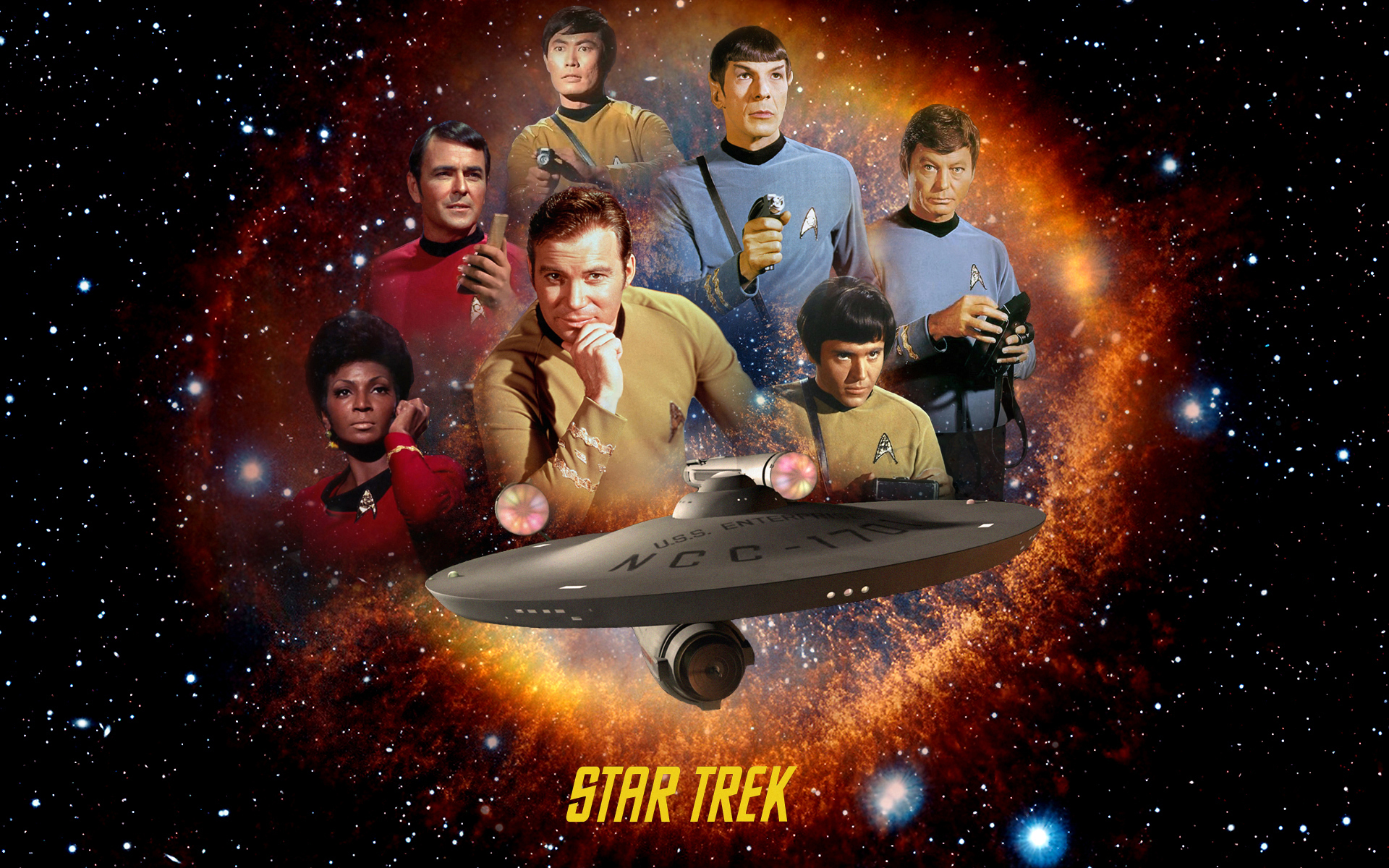“Lessons from Star Trek”
In the 1960s, a signal was sent—not to space, but to us.
A transmission wrapped in science fiction, driven by optimism, and grounded in one bold belief:
The future can be better—if we are better.
That signal was Star Trek: The Original Series.
It wasn’t just a show. It was a cultural hypothesis:
- What happens if we outgrow war?
- What happens if we pursue truth over power?
- What happens if we explore—not to conquer—but to understand?
Star Trek didn’t promise utopia.
It offered a vision:
A world where reason guides policy, where diversity is strength, and where curiosity is sacred.
It was, in every sense, a sermon for the future.

The Enterprise as a Symbol of Rational Faith
The USS Enterprise was not a warship. It was a vessel of exploration.
Its mission was not domination, but understanding:
“To explore strange new worlds.
To seek out new life and new civilizations.
To boldly go where no man has gone before.”
This is more than a mission statement—it is a declaration of purpose, one that CASE holds sacred.
- Captain Kirk represented courage and instinct tempered by diplomacy.
- Spock embodied logic, discipline, and the power of self-control.
- Dr. McCoy reminded us that ethics, compassion, and humanity must ground all progress.
Together, they formed a triad of reason, emotion, and intuition—each necessary to navigate both the stars and ourselves.
Star Trek and the CASE Ethos
CASE and Star Trek share a foundational truth:
Discovery is not just a scientific act—it is a moral one.
In the Federation’s Prime Directive, we see the principle of non-interference:
- A caution against arrogance.
- A commitment to ethical restraint.
- A respect for the autonomy of others.
This resonates deeply with our belief that science without ethics is dangerous, and that progress without compassion is regression.
Star Trek showed us that technology alone does not create justice—it must be wielded with wisdom, humility, and hope.

A Vision for Our Future
First generation Star Trek gave us more than transporters and phasers. It gave us:
- Uhura: A Black woman commanding the communications of a starship in an era of racial segregation.
- Sulu and Chekov: A Japanese-American and a Russian working side by side at the height of Cold War tension.
- A galaxy where peace is the challenge—not the default.
It said to its viewers:
Yes, the world is broken.
Yes, the future is uncertain.
But with reason, with courage, with unity—we can chart a better course.
This is the faith of the rational explorer.
This is the CASE creed in narrative form.
Go forth, and keep seeking.
Let us take this lesson to heart:
We are already aboard the starship. Earth is our vessel. Our journey has already begun.
We don’t yet have warp drives or replicators.
But we do have curiosity.
We do have compassion.
And we do have the ability to choose what kind of future we build.
Let us boldly go—not just into space,
But into justice,
Into equity,
Into discovery fueled by integrity.
Let us go forward with Spock’s logic, McCoy’s humanity, and Kirk’s fearless will to act.
Let us be the crew the universe has been waiting for.
For in science, we seek truth.
Through innovation, we progress.
And with imagination, we reach the stars.


Leave a Reply